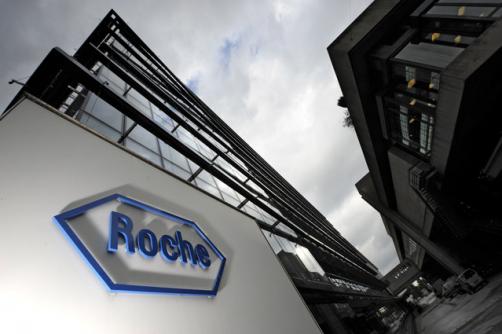
Roche combination drug for melanoma impresses
pharmafile | July 14, 2014 | News story | Research and Development, Sales and Marketing | GSK, Roche, Yervoy, braf, mekinist. MEK, melanoma
Roche’s investigational melanoma drug cobimetinib has helped late-stage patients live longer when used in combination with its established skin cancer pill Zelboraf.
The Phase III coBRIM study met its primary endpoint after it showed that the Swiss firm’s new MEK inhibitor cobimetinib, used in combination with Roche’s marketed BRAF inhibitor Zelboraf (vemurafenib), helped patients with previously untreated BRAF V600 mutation-positive advanced melanoma live ‘significantly longer’ without their disease worsening – when compared to Zelboraf alone.
Full details of just how much longer progression free survival was achieved have not been released.
Roche says that the data from this study will be presented at an upcoming medical meeting, adding that it plans to submit these data to both the FDA and the European Medicines Agency for potential approval later this year.
“Despite great progress in our understanding and therapy in recent years, advanced melanoma remains a difficult and deadly disease that requires more treatment options,” explains Sandra Horning, chief medical officer and head of global product development at Roche.
“These encouraging data support the potential combined use of cobimetinib with Zelboraf to block tumour growth longer than Zelboraf alone. We hope this combination therapy will lead to a new option for patients.”
Cobimetinib is designed to selectively block the activity of MEK, one of a series of proteins inside cells that make up a signalling pathway that helps regulate cell division and survival.
Cobimetinib binds to MEK while Zelboraf binds to mutant BRAF, another protein on the pathway, to interrupt abnormal signalling that can cause tumours to grow.
Zelboraf has been on the market since 2011 and was the first BRAF inhibitor to be approved for melanoma patients. The drug is expected to bring in around $700 million to $1 billion in peak annual sales.
Growing competition
Cobimetinib would not however be the first MEK inhibitor to market for this type of cancer, should it receive approval.
Just last week GSK’s (and soon to be Novartis’) Mekinist (trametinib) was approved in Europe for patients with unresectable or metastatic melanoma with a BRAF V600 mutation who have failed on Zelboraf.
GlaxoSmithKline also has a BRAF inhibitor in the shape of Tafinlar (dabrafenib) and has beaten Roche to market with a combination therapy of Tafinlar and Mekinist, which was approved by the FDA in January.
If GSK’s products prove more effective together than Roche’s treatment, it could earn the company a sizable chunk of a billion-pound market. Analysts have predicted peak annual sales for Mekinist and Tafinlar to reach £1.5 billion ($2.4 billion) by 2020.
But should Roche gain approval for a cobimetinib-Zelboraf combination therapy, this could help shore up its sales, especially as Zelboraf has been on the market as a singular treatment for longer than GSK’s treatment.
All of these medicines will, however, need to compete with Bristol-Myers Squibb’s cancer vaccine Yervoy (ipilimumab), which was the first of the new generation of melanoma drugs to be approved by the FDA in early 2011.
This treatment is expected to reach blockbuster sales and can potentially treat all forms of melanoma as it ‘teaches’ the body’s immune system to combat cancer.
The ultimate goal for oncologists is to be able to use greater combination therapies in this area to try and attack the cancer from as many sides as possible.
Ben Adams
Related Content

GSK’s Exdensur receives MHRA approval for asthma and rhinosinusitis
GSK’s Exdensur (depemokimab), a twice-yearly biological medicine, has received approval from the UK Medicines and …

Roche receives CE Mark for blood test to help rule out Alzheimer’s
Roche has been granted CE Mark approval for its Elecsys pTau181 test, the first in …

Five facts about UV exposure and sun safety
1We can acclimatise to UV exposure. For example, we’re more likely to burn if there’s …





